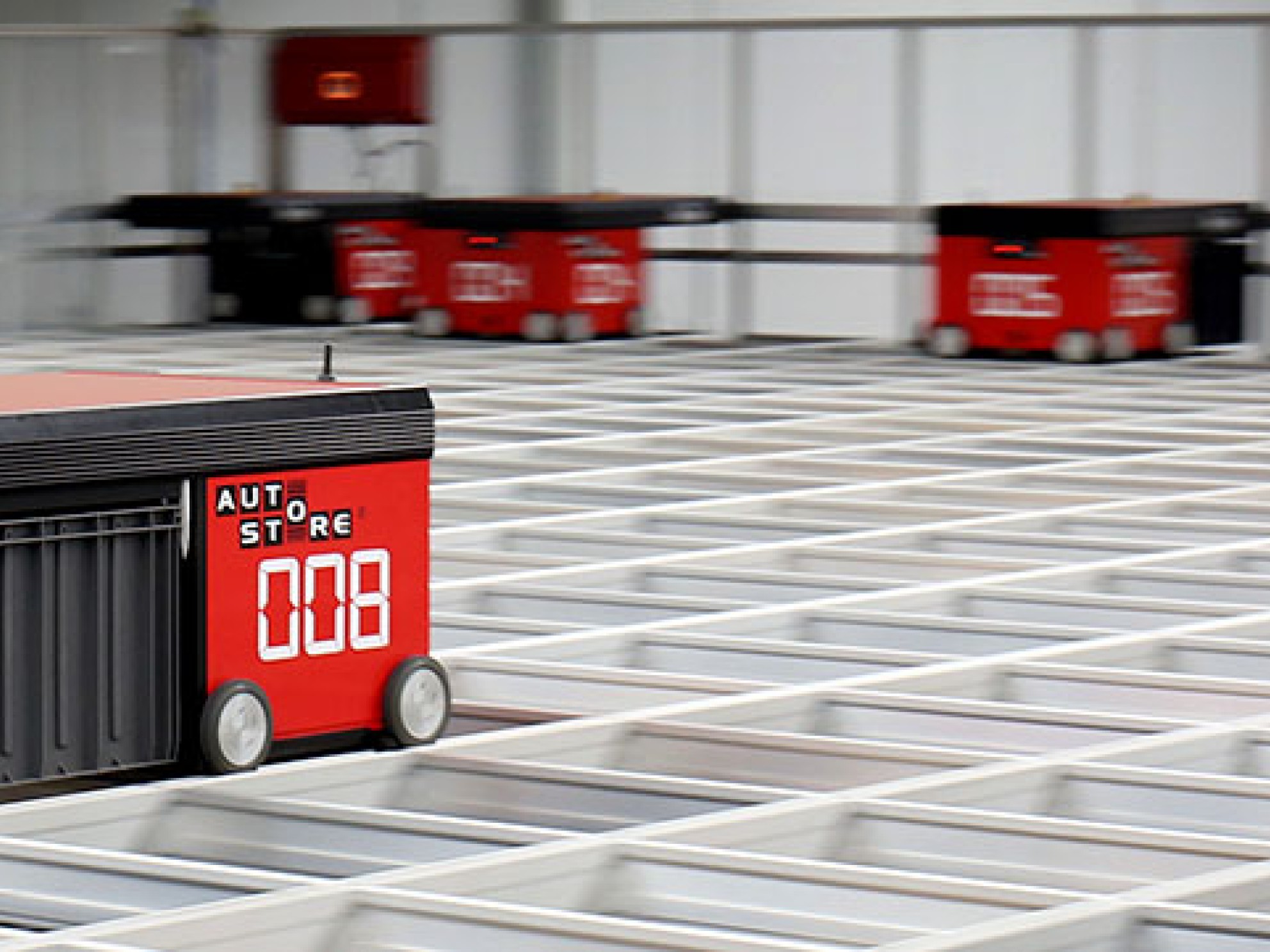AutoStore is a technology company that develops automated storage and distribution systems. They just celebrated a new milestone: 1,000 systems sold in over 46 countries, with over 42,000 robots that have retrieved over 5 billion boxes of goods.
Goods in cubes and robots on rails
It all started with the idea of optimizing space in warehouses. In Hatteland Gruppen, Ingvar Hognaland worked as technical director. He wanted to get rid of all the air from the department store, and in 1996 put forward the idea of storing goods in a kind of Rubik's cube. It became AutoStore and cube storage, which is simply explained as a building kit: a construction with rail walkways for the robots, the robots themselves, boxes that are filled with goods and a control system that controls movements and keeps the goods in order. The robots transport the boxes to gates where warehouse workers both place and pick goods, label, pack and send them out.
In the 2000s, Hatteland Gruppen was sold to Arrow Electronics, and AutoStore was later separated as its own company. In 2021, AutoStore was listed on the stock exchange and valued at over NOK 100 billion. Beyond the AutoStore system, they develop related technology such as software and analysis products, and niche products for the merchandise trade and smaller e-commerce players.
– We have an entrepreneurial spirit at AutoStore and are constantly developing new products. The fact that we have 1,500 patents and patent applications out there shows in many ways our development. Protecting our technology is one of the most important things we do.
Rights ensure competitiveness and continued growth
One of the most important things AutoStore does to keep competitors at bay and to ensure continued growth is to safeguard intellectual property rights. They protect the technology through IP in the broadest sense. The IP strategy balances the need for protection and secrecy against the more operational need.
Through an extensive network of patents, exclusive rights to the system and the individual components are secured. Today, the company has 1,500 patents and patent applications related to the warehouse and distribution system, and 270 patent families. They are constantly developing new product functionality that improves the technology. In order to maintain their position as market leader, they must keep a close eye on both expiring patents and new ones that need to be added.
They ensure the exclusive rights of relevant brands through trademark protection , and design protection of the appearance and shape of the system provides an important supplementary protection. These rights make it challenging for other third parties to enter the market.
They have experienced some patent disputes, but this only concerns a small part of the portfolio. They will continue to protect their patents from players they believe are infringing them.
Protection of the technology provides security for innovation and rapid growth
- It is important to be aware of what makes a company unique. If you know that, you become more aware of which competitive advantages you should protect, and IP is often a central part of that work. We have professionalized the way we protect our technology over time, and that gives us the confidence to develop and grow quickly, says Jenny Sveen Hovda, General Counsel at AutoStore.
Has used professional advisers in the process
They have done the professionalization of IP together with the patent agency Onsagers, which has followed the company from the start. Eventually they also got help from Dehns in London. They work together to develop and implement the IP strategy in AutoStore, among other things by identifying, preparing, submitting and following up on patent applications worldwide. The goal is to constantly protect and maintain AutoStore's competitive advantage as the pioneers in what is called cube storage.
Good advice for other businesses in the start-up phase
- The best advice we can give is to become aware of what makes the company unique, and how best to protect these competitive advantages. It is wise to start early with IP. If you are in the start-up phase and have limited funds, it can be economical to use an IP advisor to prevent starting processes that do not lead to progress, and to prevent mistakes when applying for rights outside Norway, concludes Jenny Sveen Hovda.




